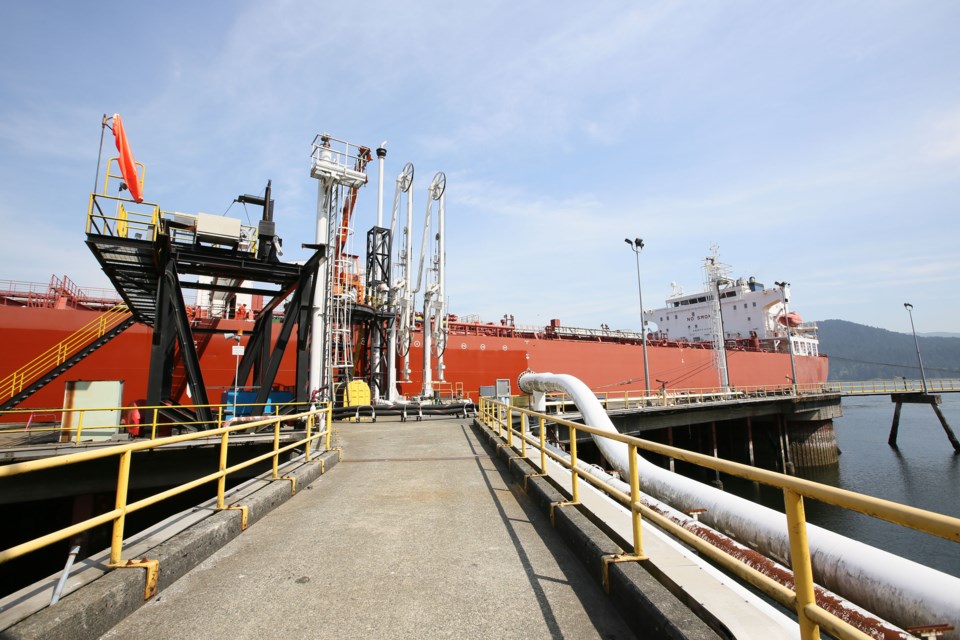The Trans Mountain pipeline project has been delivered a stunning blow by the Federal Court of Appeal.
In a ruling released this morning, the court said the National Energy Board did not properly consult First Nations about Kinder Morgan Canada’s Trans Mountain pipeline project.
The ruling said that during the NEB permit project Canada acted in “good faith” when consulting “Indigenous peoples and First Nations … however, at the last stage of the consultation process prior to the decision of the Governor in Council, a stage called Phase III, Canada’s efforts fell well short of the mark set by the Supreme Court of Canada. Canada failed in Phase III to engage, dialogue meaningfully and grapple with the real concerns of the Indigenous applicants so as to explore possible accommodation of those concerns. The duty to consult was not adequately discharged.
“Accordingly, for the following reasons, I would quash the Order in Council and remit the matter back to the Governor in Council for appropriate action, if it sees fit, to address these flaws and, later, proper redetermination.”
The project and Kinder Morgan had won a long string of court cases related to the project, but this ruling covered a wide range of lawsuits. The case combined nearly two dozen lawsuits calling for the NEB's review of the project to be overturned. First Nations, including the Tsleil-Waututh and Squamish on British Columbia's south coast, argued the federal government did not adequately consult them before the energy board review or the cabinet decision to approve the project.
The ruling also outlined another flaw in the NEB process – saying that a “critical error” was made in regards to the consideration of tanker traffic in waters around Burnaby and Vancouver, and beyond.
“While a number of applicants challenge the report of the National Energy Board, as explained below, the Order in Council is legally the only decision under review. Its validity is challenged on two principal grounds: first, the Board’s process and findings were so flawed that the Governor in Council could not reasonably rely on the Board’s report; second, Canada failed to fulfil the duty to consult owed to Indigenous peoples. Applying largely uncontested legal principles established by the Supreme Court of Canada to the factual record, a factual record that is also largely not contested, I conclude that most of the flaws asserted against the Board’s process and findings are without merit. However, the Board made one critical error. The Board unjustifiably defined the scope of the Project under review not to include Project-related tanker traffic. The unjustified exclusion of marine shipping from the scope of the Project led to successive, unacceptable deficiencies in the Board’s report and recommendations. As a result, the Governor in Council could not rely on the Board’s report and recommendations when assessing the Project’s environmental effects and the overall public interest.”
A ruling in the Indigenous groups' favour would be likely to kill the multibillion-dollar pipeline expansion that Canada has offered to purchase, said George Hoberg, a public policy professor at the University of British Columbia, in an interview before the decision was announced.
"If the Federal Court strikes down the permit authorizing the pipeline because of inadequate consultation, or for another reason, then I don't see how the pipeline project can proceed — unless or until the Supreme Court reversed that decision," he said.
The decision is likely to be appealed to the Supreme Court of Canada either way, Hoberg predicted, and another 18 months to two years will pass before it's settled.
Environmental groups and the cities of Vancouver and Burnaby also challenged the project in Federal Court last November. They were supported by the province of British Columbia, which was an intervener, as was Alberta. The province's lawyer said Ottawa's decision to approve the pipeline's expansion between Edmonton and Metro Vancouver was based on a broad base of evidence that considered environmental, economic and Indigenous interests.
Kinder Morgan shareholders are set to vote today (Thursday) on whether to approve the sale of the pipeline and expansion project to the Canadian government for $4.5 billion.
- With files from Canadian Press




